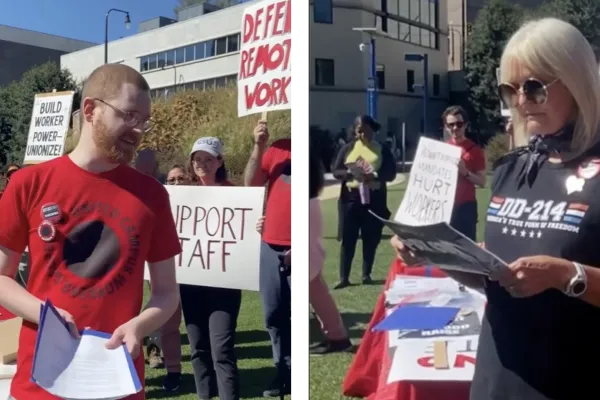On the Verge of Victory: Grad Students Win the Fight to End the SIF

This time, three years ago, the graduate committee of the UGA chapter held a meeting in which we decided to focus on the Special Institutional Fee (SIF). Due to the challenges associated with across-the-board stipend raises, we decided to focus on fees. Every student would benefit from the repeal of the SIF. Moreover, at $450 per semester, it was by far the largest fee at UGA. It was also the most egregious. The only real, universal service graduate students received from this fee was funding because the fee subsidized graduate student stipends and insurance. But this meant we were paying to work and subsidizing our own pay and benefits. And so, the fight began.
After doing research about the justification for the fee, or lack thereof, and who could vote to remove it–which turned out to be the Board of Regents (BOR)--we had a meeting with graduate students from Georgia Tech, who paid it too. We also contacted the dean of the graduate school at UGA, who quickly stopped replying after we pointed out the problems with his justifications for the fee. We then wrote a petition and hand collected signatures in support of the fee’s repeal. Within a month, we had over 1,000 signatures from graduate students and faculty around the university. In October 2019, the BOR held its monthly meeting at UGA. In conjunction with other local organizations with grievances with the BOR, we organized a rally. After our request to speak was denied, we submitted the petition signatures to the BOR. While our denial to speak that time was due to the meeting not focusing on this issue, when we requested to speak at their April meeting, which was dedicated to fees, we were also denied. We were denied the next two years as well. Instead, we were offered private meetings with the Executive Vice Chancellor for Strategy and Fiscal Affairs. Clearly, the BOR did not care to directly hear our stories.
During this time, union members became departmental representatives to UGA’s Graduate Student Association Council. A resolution to eliminate the SIF was the first passed by the council. Union faculty members on the Faculty Senate of the Franklin College of Arts and Science and the Mary Frances Early College of Education passed similar resolutions. Instead, the graduate school increased graduate stipends by 4-5% for 2022, acknowledging that this was meant to compensate for the SIF. For two years, graduate students talked to legislators during lobby day, an opportunity made possible by the union’s statewide legislative committee. These efforts helped precipitate Governor Kemp’s plans to increase state funding to higher education, making it possible to eliminate the SIF.
Since I will graduate this semester, I will never see the semester where the SIF charge is not present on my account. However, the fee is unfair no matter who is paying it. The financial precarity of any worker makes everyone’s life more precarious. Working on this campaign, moreover, provided me the opportunity to grow with amazing graduate students, faculty, and staff. Yes, the campaign involved additional work, but there was always joy in this work because of these amazing people. Yes, we are stronger together. But we are also more joyful together.
Looking back, I remember being constantly told that eliminating the SIF was not possible. Organized labor made the impossible possible. While they told us “no we can’t”, I have learned to say “Yes, WE, can”. Together—and only together—university workers can win a more just work environment that we all deserve.
Georgia public universities’ ‘return to office’ mandate may spark exodus


